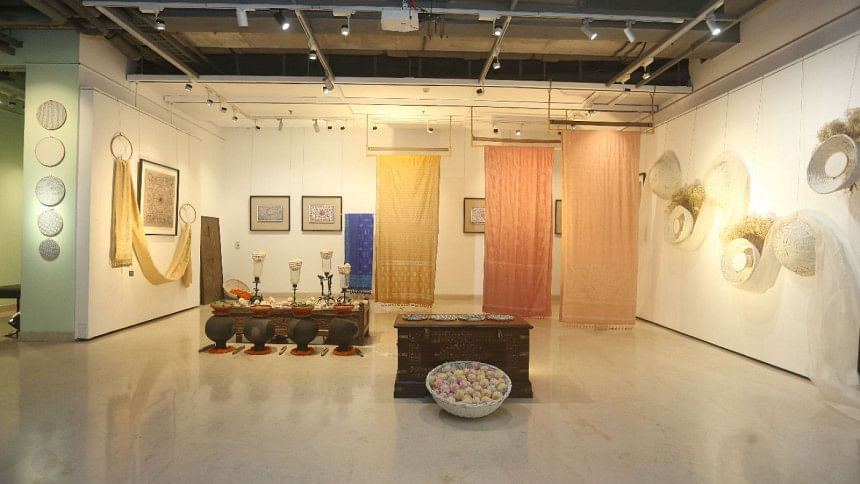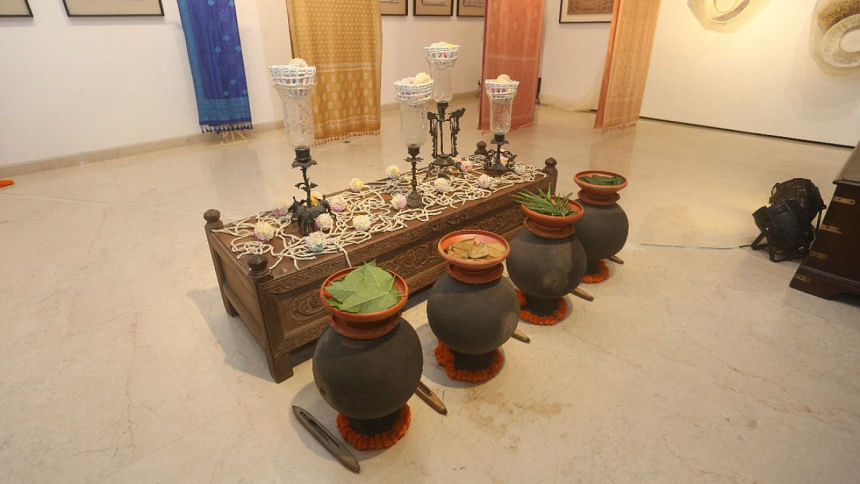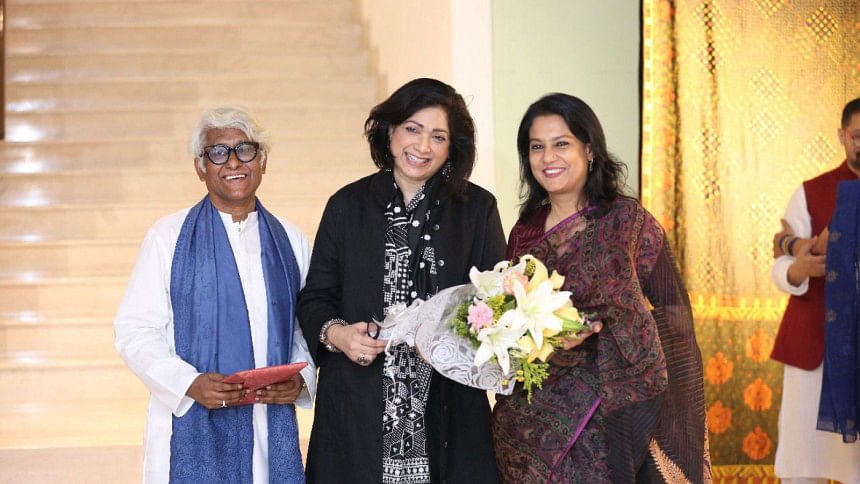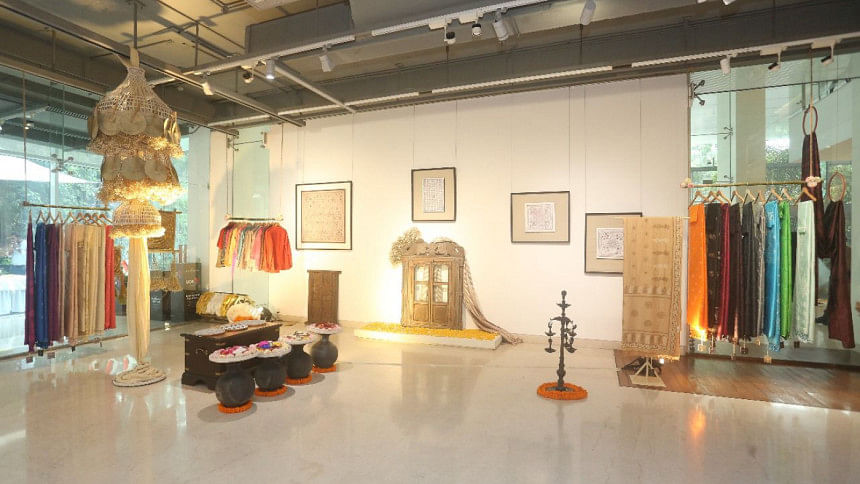Maheen Khan revives Bangladeshi heritage with silk elegance

Coinciding with the Bengali New Year, the Baishakhi Festival exhibition at Bay's Edge Gallery in Dhaka celebrated the rich cultural and artisanal heritage of Bangladesh. Curated by renowned designer Maheen Khan, the event showcased a stunning collection of handwoven silk garments, including saris, jackets, and embroidered quilts (nakshi katha). Sponsored by Hyundai, UCB, and Berger, this exhibition highlighted the country's vibrant craft traditions and their relevance to new age fashion.
Maheen Khan's journey into the world of artisanal craft and design began early.

"I started right after college at 21, in 1986," she shared. "For nearly 16 years, I worked in a more institutional setting, focusing on product development. That experience helped me understand grassroots craftsmanship and appreciate the incredible skill of local artisans who have preserved our cultural heritage across generations."
She explained that Bangladesh's traditional arts — needlework, weaving, embroidery — are deeply ingrained in its history, shaped by centuries of cultural influences from South Asia, Southeast Asia, and colonial powers such as England and Europe.
Her collaborations with handloom weavers from regions like Rajshahi and Chapainawabganj played an important role in her understanding of traditional techniques.
"Our handwoven silk is very durable, strong, and tactile," she said. "When designing heirloom-quality products, the fabric must be of exceptional quality—resilient enough to last for generations."
Through her collections, she aims to balance respect for tradition with modern tastes. Over the past two and a half years, she has developed a collection of silk sarees inspired by Bangladesh's diverse history, integrating traditional motifs with contemporary design elements.
Maheen Khan's collections are heavily inspired by Bangladesh's layered cultural influences, including Islamic geometric patterns, Arabesque motifs, and indigenous Bengali designs.
"Bangladesh's history is a melting pot — Dutch, Portuguese, English, and local Sultanate influences have all shaped our aesthetic," she explained. "Despite its small size, our country's art and craft carry the weight of a thousand years of cultural synthesis."

She stresses that traditional craft is not just art — it is a livelihood. Many artisans rely on needlework and textile arts as their primary income, making their support crucial.
In Jamalpur, she works directly with artisans, training and upskilling them to ensure that their craftsmanship remains relevant and sustainable.
"We aim to create slow fashion — garments crafted with patience, designed to be treasured and passed down," she said. "Colour choice is key. I love ivory because it's timeless and versatile. For summer, we select pastels that evoke serenity and freshness; for winter, jewel tones like deep reds and emerald greens. Every decision is thoughtful, from the fabrics to the motifs."
Her inspiration from traditional Bengali designs like shitol pati, terracotta patterns, and woven geometric motifs is evident in her work.
Maheen Khan also explained that every piece in her collection tells a story. "It's a journey from the raw yarn to the finished garment," she said. "Every stage bears human touch — done by hand — making each item unique. I carefully curate the details, from embroidery to finishing."
She credits her collaboration with master curators like Shaibal Shaha for maintaining the authenticity of her work, trusting his spontaneous judgment to bring her vision to life.
Looking forward, Maheen Khan's primary goal is to elevate Bangladesh's textile and craft industry globally.
"We need more support and investment. Our traditional crafts are sustainable, slow, and rooted in culture. The world is increasingly focused on sustainability, and our artisanal practices fit perfectly with that movement," she said. "By showcasing our heritage, we can build a valuable niche on the international stage."
Beyond commercial aspirations, Maheen Khan emphasises cultural pride.

"Our heritage isn't static," she said. "It's a living, evolving story. I want our craft to be recognised worldwide, not just as traditional art but as a modern, sustainable industry that empowers local artisans and preserves our identity."
She believes that with more exposure, investment, and strategic partnerships, Bangladesh can shift from being primarily known for readymade garments to being celebrated globally for its handcrafted textiles, too.
Her vision extends beyond individual collections. She aims to foster a global appreciation for Bangladesh's artisanal wealth and to ensure artisans receive fair recognition and support.
"Supporting local artisans isn't just good business — it's a moral obligation," she asserted. "When artisans succeed, they become ambassadors of our culture, and their work helps us preserve our heritage while creating meaningful economic change."
Photo: Courtesy

 For all latest news, follow The Daily Star's Google News channel.
For all latest news, follow The Daily Star's Google News channel. 








Comments